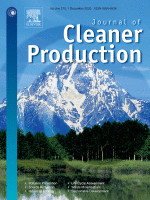Impact of hydropower development on rural livelihood: An agent-based exploration

30.07.2020
Sustainable development, Food security, Land use, Dam construction, Agent-based modeling, Water-energy-food nexus
Journal of Cleaner Production, Volume 275, 1 December 2020, 122333
Decisions on capital intensive hydrological infrastructure, including dams and canal-fed irrigation schemes, may have non-trivial effects on the behaviour and, ultimately, the well-being of local communities. We propose an interdisciplinary agent-based model to deepen the understanding of the impact of hydropower infrastructure investment on the water-energy-food nexus of local rural communities, focusing on food security in the context of a moderately sized hydropower and irrigation development in a developing country. The paper explicitly formalises the decision processes and the interactions between rural villages, districts and national governments in hierarchical and peer-topeer networks. The findings capture the consequences of the arising competition for water and land between new dam construction and local agricultural production. Results demonstrate that these dynamics can be further exacerbated by demographic pressures and climate change, leading to unsustainable consumption levels. However, these effects could be mitigated by prevention-oriented governmental policies such as investments in best practices and technological innovation, or by updating diet preferences, such increasing the consumption of food commodities with more efficient production.
Decisions on capital intensive hydrological infrastructure, including dams and canal-fed irrigation schemes, may have non-trivial effects on the behaviour and, ultimately, the well-being of local communities. We propose an interdisciplinary agent-based model to deepen the understanding of the impact of hydropower infrastructure investment on the water-energy-food nexus of local rural communities, focusing on food security in the context of a moderately sized hydropower and irrigation development in a developing country. The paper explicitly formalises the decision processes and the interactions between rural villages, districts and national governments in hierarchical and peer-topeer networks. The findings capture the consequences of the arising competition for water and land between new dam construction and local agricultural production. Results demonstrate that these dynamics can be further exacerbated by demographic pressures and climate change, leading to unsustainable consumption levels. However, these effects could be mitigated by prevention-oriented governmental policies such as investments in best practices and technological innovation, or by updating diet preferences, such increasing the consumption of food commodities with more efficient production.
